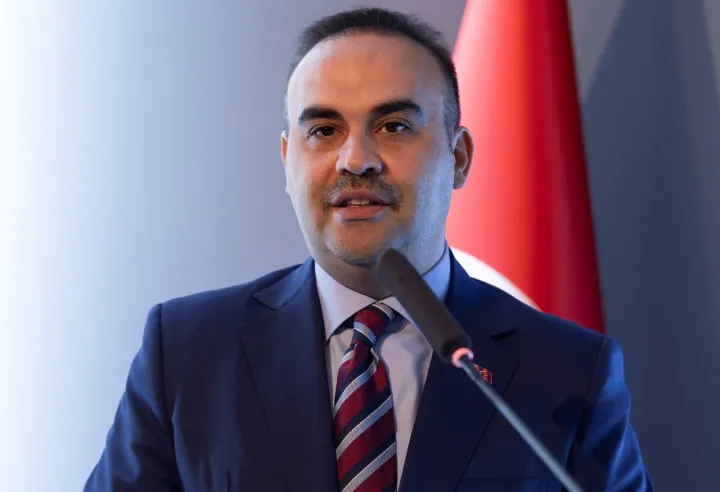By Brian Okoth
Tanzania has announced a reduction in the price of petrol in its November review as its neighbour Kenya warns of a possible cost hike.
A litre of petrol in Tanzania's commercial capital Dar es Salaam has reduced by 7 Tanzanian shillings – from Tsh3,281 ($1.31) in October to Tsh3,274 ($1.31) currently.
A litre of diesel, on the other hand, has reduced by Tsh74 – from Tsh3,448 ($1.37) to Tsh3,374 ($1.35).
Kerosene, however, recorded an increase – from Tsh2,943 ($1.17) to Tsh3,423 ($1.37) in the commercial capital.
Tanga prices
Petrol imported through the Tanga port, some 340 kilometres north of Dar es Salaam, also registered price reduction.
A litre of the commodity in Tanga will cost Tsh3,320 ($1.33), down from Tsh3,327 ($1.33) last month.
Diesel, however, saw an increase in price to Tsh3,510 ($1.41), from Tsh3,494 ($1.39) last month.
The price of kerosene also jumped to $3,469 ($1.39) in November, from Tsh2,989 ($1.19) the previous month.
Mtwara prices
In Mtwara, some 560 kilometres north of Dar es Salaam, a litre of petrol has gone down by Tsh6 – from Tsh3,353 ($1.34) in October to Tsh3,347 ($1.34) in November.
The price of diesel has, however, gone up by Tsh26 – from Tsh3,520 ($1.41) to Tsh3,546 ($1.42).
A litre of kerosene also saw its price reviewed upwards by Tsh479 ($0.19) – from Tsh3,016 ($1.21) to Tsh3,495 ($1.40).
'Decline in world oil prices'
Tanzania's Energy and Water Utilities Regulatory Authority (EWURA) said the November 1 review, which differs from the October 4 price guidelines, has been occasioned by a decline in global oil prices.
"Changes in prices of petroleum products in November 2023 are mainly due to the decrease in the world oil price by an average of 5.68%, and a decrease in premiums for the importation of petroleum products by an average of 13% for PMS and 25% for AGO, reduction of production of petroleum products by OPEC+ and economic sanctions on Russia," EWURA said in a statement dated November 1.
Tanzania's statement comes as the neighbouring nation Kenya projects that the prices of petroleum products would increase in its review on November 14 due to the Israel-Hamas conflict.
On Monday, Kenya's Energy Minister Davis Chirchir told a bipartisan committee of government and the opposition that the country "can’t do much" to rein in the fuel prices.
'Ksh300 for a litre of petrol'
"We can't do much on international pricing of petroleum. I read an article that international (crude) prices could go to $150 (per barrel) because of the Israel-Hamas war, which would literally mean our products going to a high of Sh300 ($1.98) per litre at the pump. We hope it doesn't get there," said the CS.
Currently, Kenya has the highest fuel prices in East Africa. A litre of petrol in the country's port city of Mombasa, where fuel lands upon shipping, retails at Ksh214.30 ($1.45), diesel Ksh202.41 ($1.37) and kerosene Ksh201.99 ($1.37).
In the capital Nairobi, a litre of petrol under the current pump price guidelines is Ksh217.36 ($1.47), diesel Ksh205.47 ($1.39) and kerosene Ksh205.06 ($1.39).
The fuel prices in Nairobi are almost identical to the charges in Kenya's third city Kisumu, fourth city Nakuru, and a major town in Rift Valley, Eldoret.
Ksh200 mark
Mandera, a county located near the Kenya-Somalia border and is 1,025 kilometres northeast of the capital Nairobi, has the highest fuel prices in Kenya, with a litre of petrol going for Ksh231.36 ($1.57), diesel Ksh219.47 ($1.49) and kerosene Ksh219.06 ($1.48).
The fuel prices in Kenya first crossed the Ksh200 ($1.36) mark in the September 14, 2023 review.
At the time, Kenya's Energy and Petroleum Regulatory Authority (EPRA) attributed the higher prices of fuel to the weakening of the Kenyan currency against the US dollar, an increase in the landed cost of oil, and the implementation of the new Value Added Tax on fuel, which increased from 8% to 16%.
























